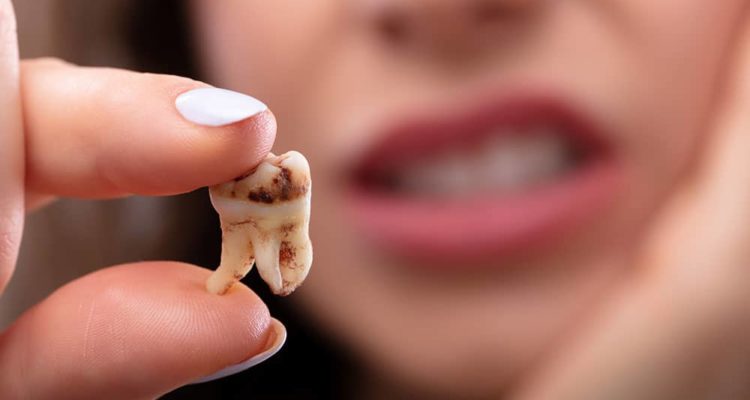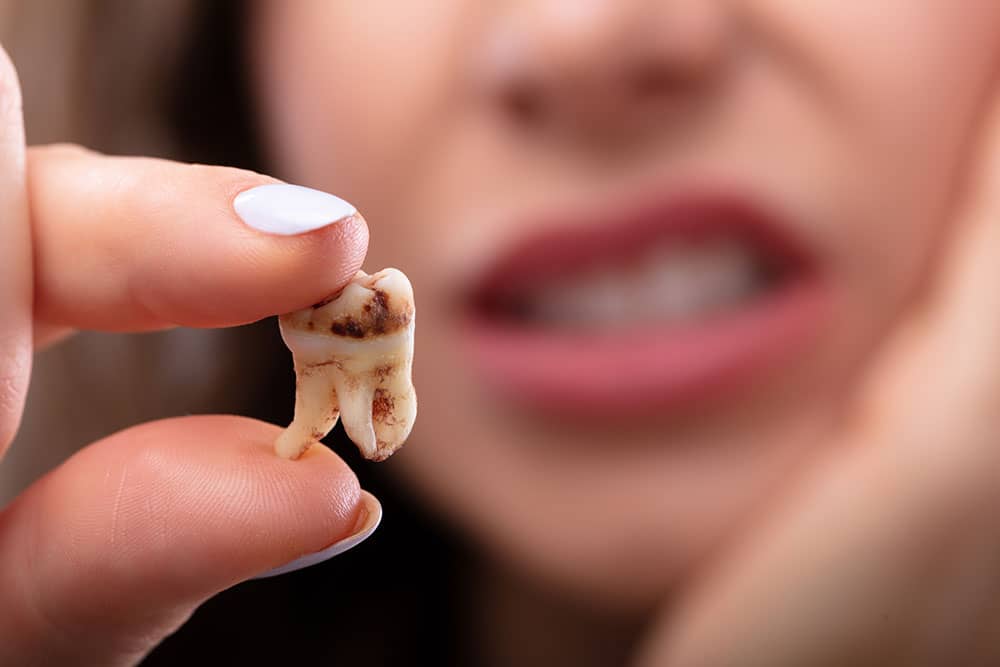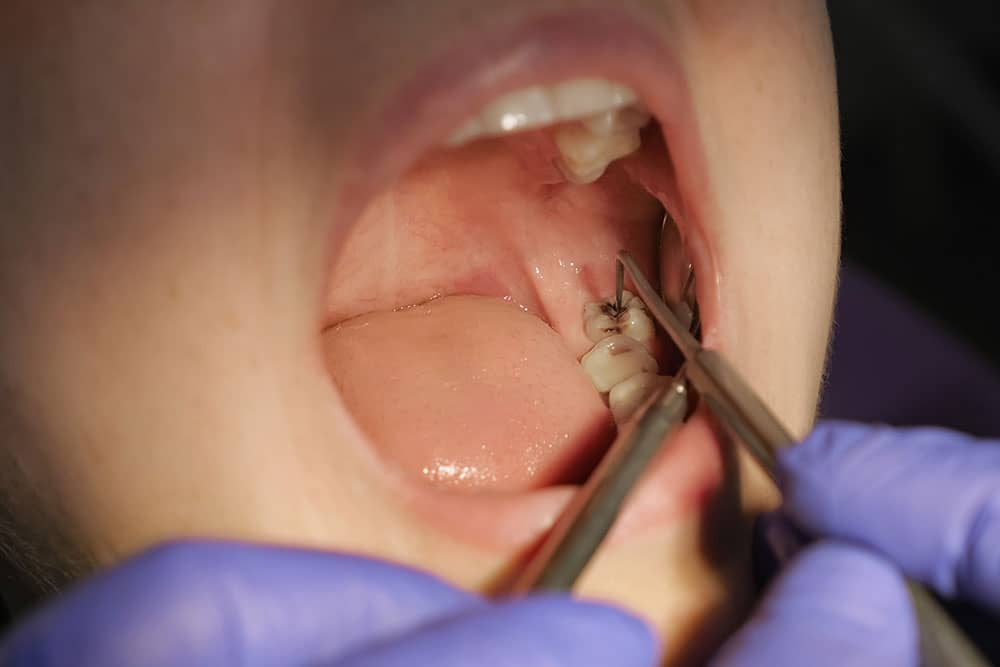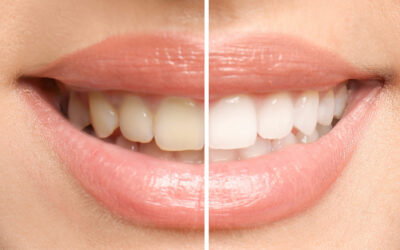A recent Australian report found that only half of Australians brush their teeth the recommended twice a day and only half have visited the dentist for a check-up within the last year.
The report also discovered that 90% of adults in Australia have experienced tooth decay in some form, likely as the result of chocolate, lollies, fruit or sugary drinks.
Here, we’ll look at exactly how cavities are formed, how they are treated, and how to prevent them.
What Are Cavities?
Cavities are holes in the enamel (the hard outer layer) of a tooth as a result of tooth decay.
What Causes Cavities?
Cavities are caused by numerous factors such as:
- Food caught in or between teeth
- Sugary drinks
- Frequent snacking on sugary items
- High fruit consumption
When bacteria in the mouth mixes with sugar from food, it creates a harmful acid. When mixed with saliva, this acid forms plaque that sticks to teeth and begins to break down the enamel. This plaque build-up can lead to cavities if it is not addressed.
What Are the Stages of Tooth Decay?
As acid from plaque builds up attacks enamel, the hard outer layer starts to get damaged. Symptoms of tooth decay often begin near the gum line and may appear as a white spot.
Left untreated, this decay can become a cavity. If left untreated, the decay can go deeper and deeper into the tooth.
What Are the Signs of a Cavity?
If you do not have any pain, you don’t have any cavities, right? Unfortunately, this is not the case. Even if you aren’t in any pain, you could have a cavity or the start of one.
Although you may not experience any symptoms at all, typical signs and symptoms of a cavity include:
- Tooth sensitivity
- Toothaches
- Pain when biting down
- A cracked tooth
- Bad breath
- White, black, or brown staining on a tooth’s surface
- Visible holes or black spots on a tooth
- Pain ranging from mild to sharp when drinking or eating something hot, cold, or sweet
If you experience any of these symptoms, it is recommended to contact your dental provider immediately.
How Are Cavities Treated?
Depending on the severity of the cavity, most dentists carefully and precisely remove the decayed portion of the tooth using a drill. Once the decay is removed, the tooth is filled with porcelain, composite resin, gold, or silver alloy. This process is commonly referred to as getting a filling.
What Happens If You Ignore a Cavity?
Cavities are common and relatively easy and straightforward to treat, so it is important to seek treatment for dental decay.
Ignoring a cavity or tooth decay can lead to serious complications such as:
- Swelling around the tooth
- Loss of the affected tooth
- Expensive treatments (dental implants, root canals)
- Tooth sensitivity or pain that leads to difficulty eating and chewing
- A tooth abscess, a serious issue caused by bacterial infection
- In later stages of decay, yellow, black, or brown discolouration may stain the affected tooth
How Can I Prevent Cavities?
Fortunately, cavities are preventable through good oral hygiene habits and a diet that supports healthy teeth.
Here are some tips for preventing tooth decay and cavities:
- Brush your teeth at least twice a day with a fluoride toothpaste
- Floss daily
- Avoid sticky, sugary foods such as lollipops, toffee, caramels, etc.
- Eat teeth-friendly foods such as apples, celery, nuts, seeds, cheese, milk, leafy greens, and carrots
- Avoid soft drinks and drink water instead
- Quit smoking and limit alcohol consumption
- Visit your dentist at least once every 6 months for a check-up and professional cleaning (this is key as a dentist can remove plaque build-up, check for cavities, and recognise early decay)
Can Tooth Decay Be Treated?
Treating tooth decay in its early stages may stop it completely. In cases of mild tooth decay, your dentist may recommend specific preventative steps, using fluoride, or applying a sealant to certain teeth.
How Can I Help My Children Avoid Cavities?
Children’s teeth have softer, thinner enamel than adults, making them more susceptible to decay.
For preventing cavities in young children, strive to:
- Encourage them to brush their teeth twice daily with proper toothpaste (one of the best ways to help kids want to take care of their teeth is by setting an example and taking good care of your own teeth)
- Brush and floss together
- Come up with a game or song you play while they brush their teeth
- Let them pick out their own toothbrush
- Avoid or limit consumption of sugary drinks, sweets, and juices
- Model healthy teeth and gums and healthy food habits for your child to learn from. Keeping your own mouth and teeth healthy also helps you prevent passing on harmful bacteria if you taste the same food or share a utensil with your child.
We Are Here To Help With Your Questions or Concerns About Cavities
At 123 Dental, we are committed to supporting you in keeping your gums, teeth, and mouth healthy. From our regularly updated blog to our customised, caring in-office visits, it is our goal to keep you on track to a healthy mouth for a lifetime.
Please feel free to contact our office anytime with questions or to set up a consultation.








